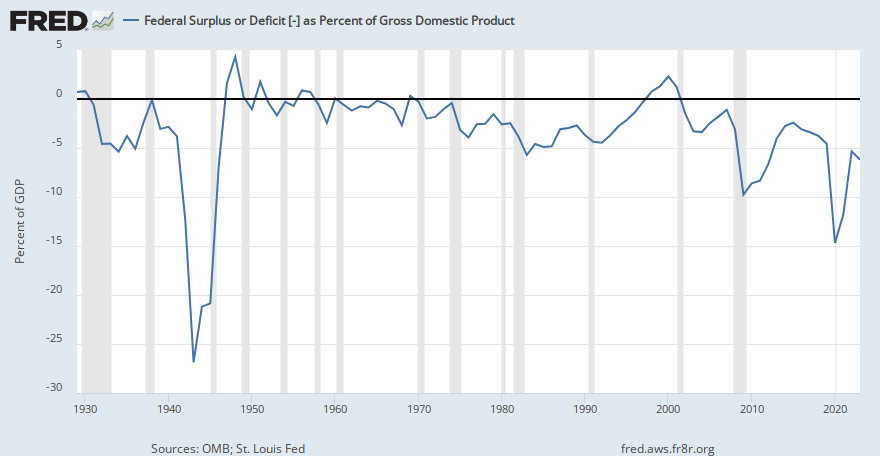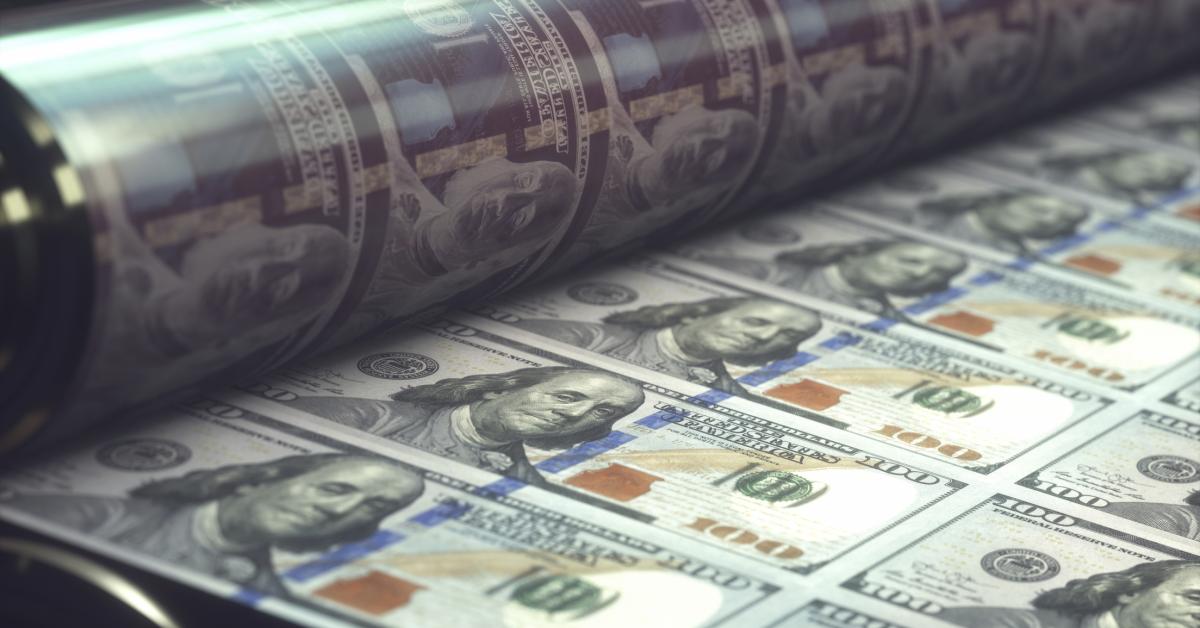"Interest costs will reach a record 3.2 percent of GDP this year – exceeding the cost of defense and Medicare," said a budget watchdog group. That may signal a debt spiral.

justthenews.com
Many like myself would argue we are already in that debt spiral and that the 2045 figure is only possibly by keeping on the rose colored glasses and presuming that at some point on the path between now and then, people will actually embrace some pain points rather than jumping off a cliff and continuing down the same path. As an example the 2045 figure probably presumes that when Social Security goes "banktupt" in 2035 the pain is just allowed to happen and the shortfall in benefits won't be borrowed and thrown on to the rising debt.
Yeah that won't happen so in reality we are probably in that spiral now and have been for a while.
The thing that makes me far more pessimistic than most is that the projections pretty much assume things will continue as they when life is seldom that way. Many people earn a good living until suddenly they can't as an example. Many people are in great health until they aren't. That is the great argument about where you draw the lines in a planning discussion. "Just save $500 a month for the next 20 years" presumes you never have bumps in the road. My style of planning presumes the bumps and thus is far more conservative.
So what is a debt spiral and why is it so bad? You can't grow your way out of the debt at the point. Worse still (and this is why I say we are there now) the pain on the return is so large that the shock can't be fully absorbed and even if successful, there are a lot of secondary factors that just show you managed to mitigate the worst outcome while still having serious secondary outcomes be major problems.
So you can't grow your way out of the debt when the amount of debt you need is more than the economy can likely grow. If you need to add 8% of debt a year and an economy as large as the United States can grow reasonably 3-5% a year (which is great grown BTW) then the debt will just keep growing.
We understand this in smaller matters quite easily. You can't earn your way out of a spending problem. You can't exercise your way out of an eating problem.
The secondary matter is that big spending cuts likely SLOW the rate of economic growth. I'd say that is 100% true but you can't just keep adding debt either. It's a tightrope walk for the most part. Right now the Trump administration is talking about trying to get out spending down to ONLY borrowing a trillion dollars a year.
That will indeed bring pain but seriously, the pain is coming in one form or another. You can't go from borrowing $2 trillion a year to a dollar less than that without someone having some pain involved.
There's a lot more pain coming too. The best one could hope for is promoting the most growth possible while trying to absorb just enough pain to try to correct the path going forward. There is no path with zero pain. It doesn't exist.
The future pain points are coming and the less pain we are willing to confront today, the more we will confront in the future.






